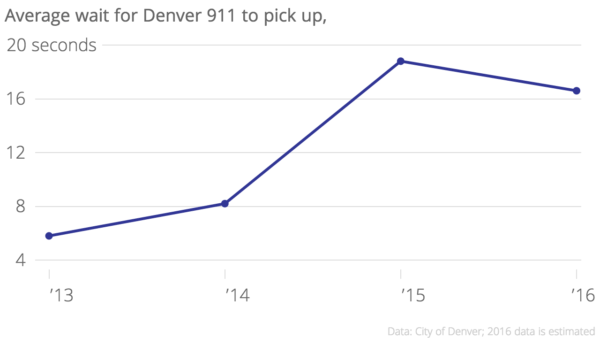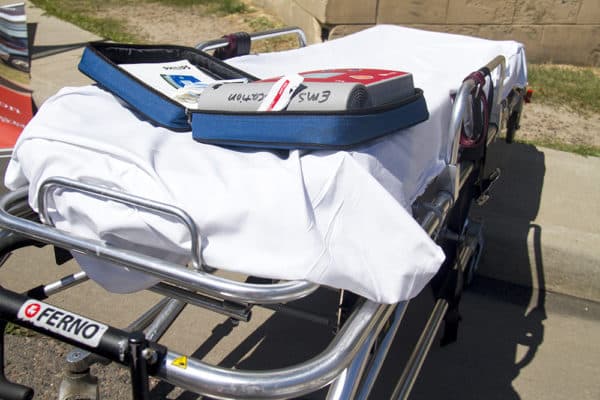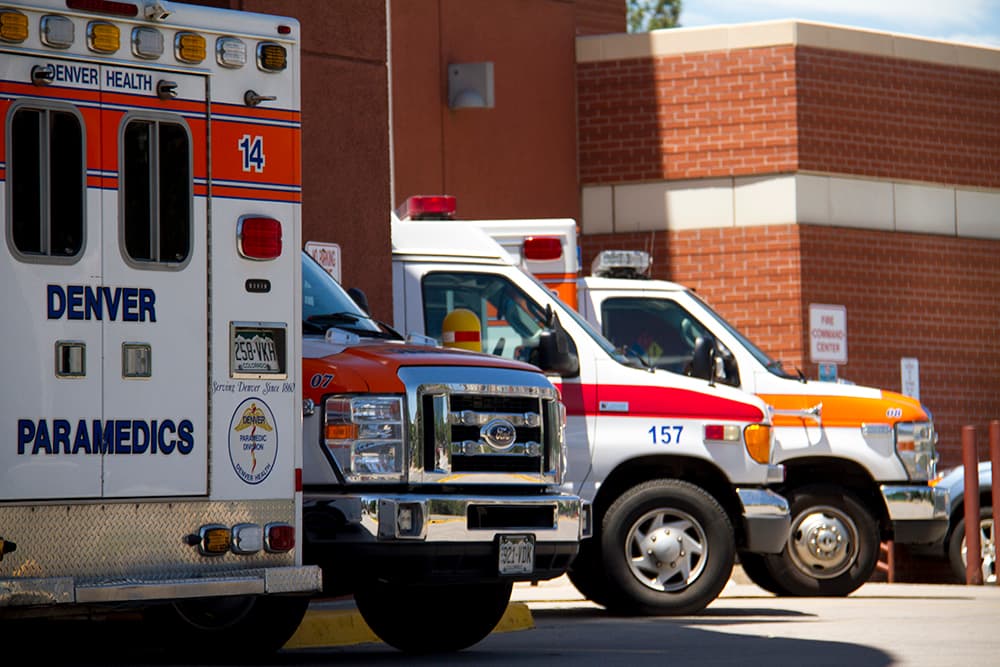A surge in the number of 911 calls has resulted in longer waits for emergency services in Denver.
Callers waited an average of about 6 seconds for 911 dispatchers to answer the phone in 2013. By 2015, that number had climbed to nearly 19 seconds.

The city thinks it has reduced that wait in 2016, but it still remains significantly longer than national standards suggest.
The National Emergency Number Association says that 95 percent of calls should be answered within 15 seconds. In Denver, that portion has fallen to 84 percent.
What's going on?
Population growth and the mobile revolution, as per usual.
People in Denver made about 130,000 more 911 calls in 2015 than in 2013. That's a 13 percent increase in volume.
"That’s not just the population increase. With mobile devices, you get multiple calls on an incident, and 911 has a responsibility to answer every single call that comes in," said Daelene Mix, spokeswoman for the Department of Public Safety.
So far, 2016 has brought some relief. Call volumes now are about the same as last year.

What is the city doing in response?
Denver's trying to hire more people to staff 911. That can be difficult, especially because of how much training they require. The operation has had three fewer staffers this year than last year.
To build up those levels, Denver is training more operators, increasing its number of cadets from 31 last year to 51 this year. That could boost staff numbers from 109 at present to 120 by next year, according to Mix.
Also, it's worth noting that this hasn't significantly affected overall response times, at least for the fire department. Firefighters' response metrics have been pretty stable for the last few years. Police responses to high priority calls have gotten better by between 16 and 43 seconds, depending on the district, while response times to lower priority calls have gotten longer by a minute or two. I'm waiting on EMS numbers.
What can I do?
The city is trying to teach people when to use 911 (when someone is injured or bodily harm is threatened) and when to call 311 (when you want to complain about your neighbor, for example.)
Once you're on the line, be ready to tell the operator where you are, since mobile devices don't always provide an exact location.
In other 911 advice, you can fill out a Smart911 "safety profile" about your family and you can sign up for Swift911 alerts. You can also text 911, but that's only for situations where you can't or shouldn't speak.

Update: This story was updated because the city revised the staffing counts it had provided.













